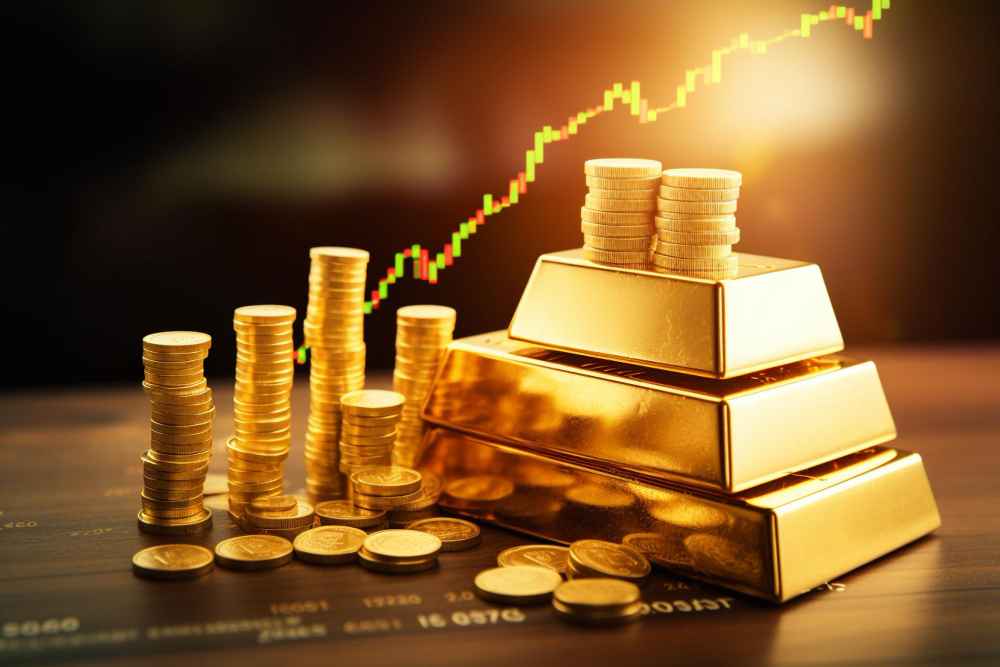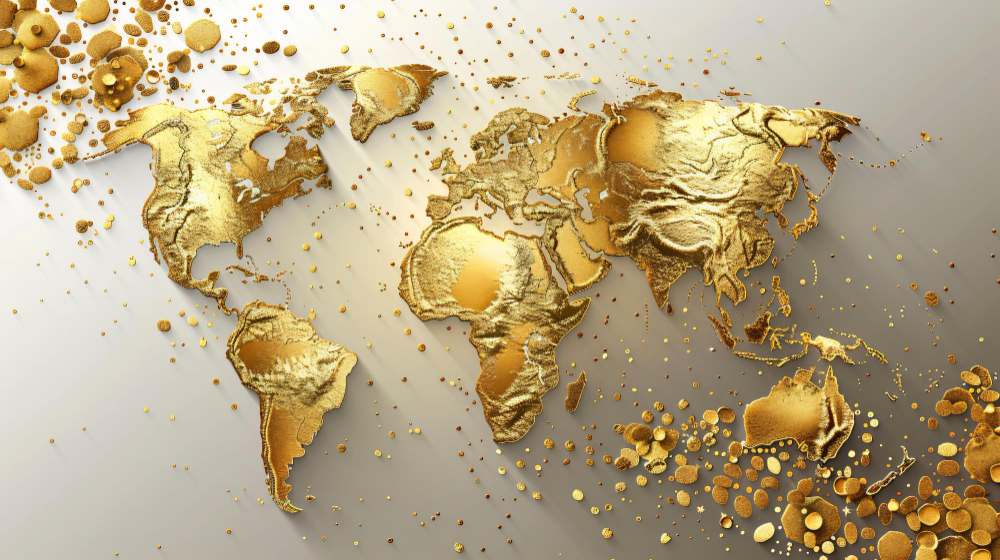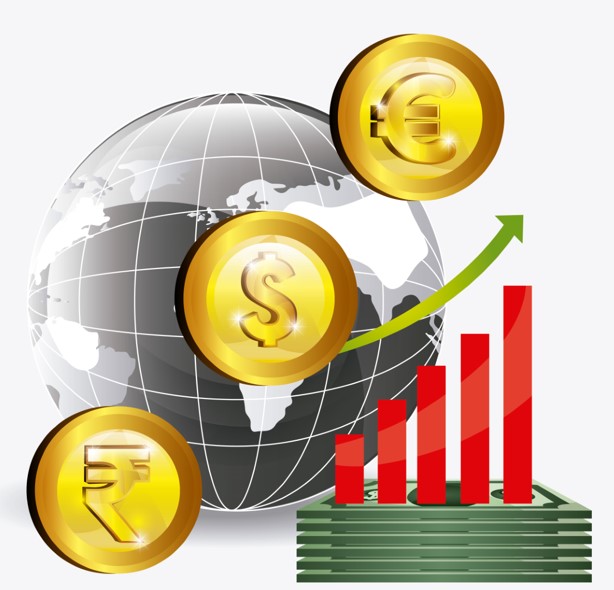In the intricate tapestry of global economics, there are few constants as enduring and universally respected as gold. This precious metal has captivated societies across epochs, serving not just as a medium of exchange but as a symbol of wealth, power, and stability. As we navigate through the murky waters of a faltering global economy, marked by inflationary pressures, geopolitical tensions, and pandemic-induced uncertainties, gold’s allure only intensifies. But what makes gold such a resilient asset in times of economic turmoil? Let’s delve into the intricacies of gold’s enduring appeal and how it continues to shine brightly against the backdrop of global economic challenges.
The Timeless Lure of Gold
A Historical Perspective
For thousands of years, gold has been revered by civilizations around the globe. From the ancient Egyptians to the modern-day financial investor, gold has been a symbol of wealth and a store of value. Its intrinsic qualities—durability, malleability, and rarity—have made it a preferred medium for jewelry and currency. But beyond its physical attributes, gold’s psychological allure lies in its ability to withstand the test of time, preserving value across generations.
Gold in Modern Economics
In contemporary financial systems, gold continues to play a critical role. Central banks and individual investors alike flock to gold as a hedge against inflation and currency devaluation. In times of economic instability, gold is seen as a safe haven, a tangible asset that can hold its value even when paper currencies falter. This enduring appeal is a testament to gold’s perceived stability in a world of fleeting financial securities.
Gold’s Gleam in Economic Downturns

A Safe Haven During Market Volatility
When stock markets tumble and currencies weaken, gold historically has glowed even brighter. Its price often moves inversely to the stock market or economic performance, making it an attractive option for diversifying investment portfolios. In the face of economic downturns, investors gravitate towards gold, seeking shelter from the storm of market volatility.
The Inflation Hedge
Inflation erodes purchasing power, making every dollar in your pocket worth less tomorrow than today. Gold, however, has demonstrated an incredible capacity to hold its value over time. Its price tends to rise with the cost of living, making it an effective hedge against inflation. This attribute is particularly appealing in times when inflationary pressures threaten to undermine traditional investments like bonds and savings accounts.
The Geopolitical Gold Rush

Uncertainty Fuels Demand
Global tensions and uncertainties often lead to increased demand for gold. Political upheavals, wars, and economic sanctions can shake investor confidence in governments and financial institutions, driving a flight to safety. Gold, with its millennia-long history of value preservation, becomes a beacon of stability in turbulent times.
Diversification Across Borders
Investing in gold allows for geographical diversification. Unlike currencies and government bonds, which are subject to the economic policies and stability of a single country, gold is universally valued. This global appeal makes it a strategic asset for mitigating country-specific risks, offering investors a form of financial insurance against geopolitical upheaval.
The Digital Gold Rush: Cryptocurrencies and Gold
Competing or Complementary?
The rise of cryptocurrencies, often touted as the “digital gold,” has sparked debates about their potential to replace traditional safe-haven assets. However, despite their increasing popularity, cryptocurrencies’ extreme volatility and regulatory uncertainties present risks that gold, with its established history and stability, does not.
A Diverse Safe-Haven Portfolio
For savvy investors, the choice between gold and digital currencies is not mutually exclusive. Combining physical gold’s tangible security with the high potential returns of cryptocurrencies can create a balanced safe-haven portfolio, leveraging the strengths of both worlds.
The Environmental and Ethical Dimensions of Gold

gold tree
Sustainable Gold Mining
The environmental impact of gold mining has drawn scrutiny and calls for more sustainable practices. Efforts to reduce the ecological footprint of gold production, such as minimizing toxic emissions and conserving water, are becoming increasingly important to environmentally conscious investors.
Fair Trade Gold
The pursuit of ethically sourced gold has gained momentum, addressing concerns over labor practices and the funding of conflicts. Certifications for fair trade gold aim to ensure that small-scale miners operate under fair conditions, promoting social and environmental responsibility in the gold industry.
Investing in Gold: Strategies and Considerations
Physical Gold vs. Gold Securities
Investors looking to add gold to their portfolios can choose between physical gold, such as coins and bars, and gold securities, like exchange-traded funds (ETFs) and mining stocks. Each option has its advantages and considerations, from the tangible security of physical gold to the liquidity and convenience of gold securities.
Long-Term vs. Short-Term Investment
Gold can fit different investment strategies, whether as a long-term store of value or a short-term hedge against specific economic events. Understanding one’s investment horizon and risk tolerance is crucial when incorporating gold into a diversified portfolio.
The Future of Gold in a Global Economy

global economy gold
As we look ahead, the role of gold in a global economy appears as relevant as ever. Economic uncertainties, inflationary pressures, and geopolitical tensions may change in form but not in essence. Gold’s historical legacy, combined with its modern-day appeal, positions it as a cornerstone of investment strategies aimed at wealth preservation and risk management.
Innovation in Gold Trading and Ownership
Technological advancements are making gold more accessible to a broader audience. From digital platforms for buying and selling gold to blockchain-based tokens representing ownership of physical gold, innovation is opening up new avenues for investing in this ancient asset.
Conclusion

In the shadows of a faltering global economy, gold continues to glitter, offering a beacon of stability and security for investors worldwide. Its timeless allure, underpinned by historical significance, physical properties, and economic functionalities, makes gold a unique asset in the complex world of investments. As we navigate through economic instabilities and uncertainties, the role of gold, both as a safe haven and a strategic investment, remains undiminished. In the end, gold not only offers a hedge against economic downturns but also serves as a bridge connecting the past, present, and future of global finance.
FAQs
1. Why is gold considered a safe haven during economic downturns?
Gold is considered a safe haven during economic downturns because it has a history of maintaining its value in times of financial uncertainty. Unlike paper currencies and other assets, gold is less susceptible to factors like inflation and currency devaluation, making it a stable investment choice during volatile periods.
2. How does gold act as a hedge against inflation?
Gold acts as a hedge against inflation because its price tends to rise along with the cost of living. As inflation decreases the purchasing power of paper money, gold’s value in terms of goods and services generally remains stable, protecting investors’ wealth.
3. Can gold and cryptocurrencies be part of the same investment portfolio?
Yes, gold and cryptocurrencies can complement each other in a diversified investment portfolio. While gold offers stability and a long history of value preservation, cryptocurrencies provide high potential returns and digital innovation. Together, they can offer a balance of security and growth.
4. What are sustainable gold mining practices?
Sustainable gold mining practices include methods that minimize environmental impact, such as reducing greenhouse gas emissions, conserving water, and managing waste responsibly. These practices also involve ensuring fair labor conditions and contributing positively to local communities.
5. How can investors responsibly invest in gold?
Investors can responsibly invest in gold by choosing ethically sourced and sustainably mined gold products. This includes looking for certifications like Fairtrade or Responsible Gold, investing in gold recycling, and supporting companies that adhere to environmental and social governance standards.




